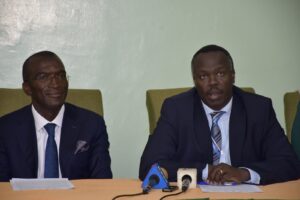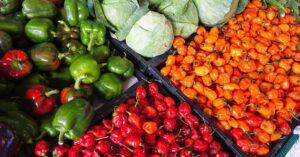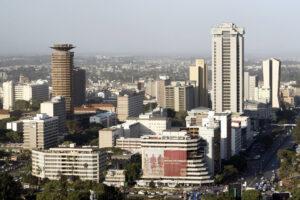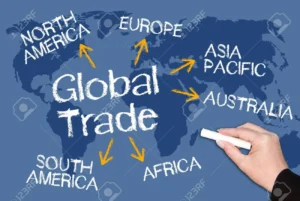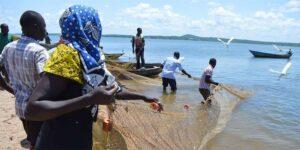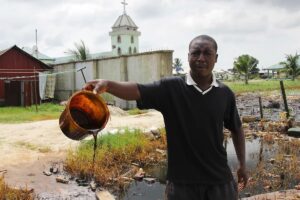- Abu Dhabi radiates optimism as over 300 startups join AIM Congress 2024
- TLcom Capital Raises $154 million in Funding to Boost Its African Growth
- Africa’s $824Bn debt, resource-backed opaque loans slowing growth — AfDB
- LB Investment brings $1.2 trillion portfolio display to AIM Congress spotlight
- AmCham Summit kicks off, setting course for robust future of US-East Africa trade ties
- Why the UN is raising the red flag on the UK-Rwanda asylum treaty
- Portugal’s Galp Energia projects 10 billion barrels in Namibia’s new oil find
- Wärtsilä Energy offers tips on how Africa can navigate energy transition and grid reliability
Regional Markets
- East Africa’s economic growth is projected to grow at 5.3 and 5.8 per cent in 2024 and 2025-26, respectively.
- The World Bank projects African economies to grow by 3.4 per cent in 2024.
- However, faster and more equitable growth is needed to reduce poverty.
East Africa’s economic growth to lead the continent
Economies in East Africa are expected to spearhead growth in Sub-Saharan Africa this year amid increased private consumption and declining inflation, which are supporting an economic rebound in the region.
The World Bank’s latest Africa’s Pulse report indicates the East African Community is projected to grow at the fastest pace at 5.3 and 5.8 per cent in 2024 and 2025–2026, respectively, thanks to robust growth in the Democratic Republic of Congo, Kenya, Rwanda, and Uganda.
This is higher than the compounded growth for Sub-Sahara Africa, which, albeit rebounding from a low of 2.6 per cent in 2023, is …
- Kenya is keen on extending its pipeline to Malaba (Kenya-Uganda border), with Uganda expected to construct a link line to Kampala.
- According to the Shippers Council of Eastern Africa (SCEA), Mombasa used to command up to 70% of transit business, but this has decreased to 60 per cent.
- Uganda imports an average of 2.5 billion litres of petroleum annually, valued at about $2 billion, with KPC handling at least 90 per cent of the volumes.
Kenya is courting Uganda in a fresh bid to retain and possibly increase petroleum exports amid increased competition from neighbouring Tanzania. In recent months, East Africa’s economic powerhouse has come under pressure from Tanzania, which is eyeing to tap more transit markets for imports and exports into the hinterland through the Dar es Salaam Port.
In the latest developments, Tanzania has offered to license Uganda National Oil Company (UNOC) to import petroleum products through Dar …
- Kenya’s equity market has received an upgrade on its classification by the FTSE Russel Index from “Restricted’ to “Pass” on the repatriation of capital and income.
- This development partly indicates that Kenya is now a maturing market, characterised by increased transparency, liquidity, and a growing investor confidence.
- Across Africa, data shows that an estimated $700 million was reported held in 11 African countries, with Nigeria accounting for the lion’s share.
FTSE Russell, a global provider of analytics, benchmarks and data services, has endorsed the Nairobi Securities Exchange Plc (NSE), ushering a new era in Kenya’s financial services industry. The NSE has announced that as of March 2024, the Nairobi bourse has been reclassified by the FTSE Russell Governance Board, moving from a “restricted” to a “pass” status.
This pivotal change is not just a mark of progress, but a move to underscore the resilience and strategic navigation of the Kenyan …
According to the Central Bank of West African States (BCEAO), growth should accelerate in the WAEMU economic region in the medium term. The increased production in the tertiary and secondary sectors remains crucial. These sectors should benefit from controlling the current health crisis in the Union and the continued implementation of the NDPs.
Growth in the Union is expected to drop from 6 per cent in 2021 to 5.9 per cent in 2022 before settling at 7.2 per cent in 2023. The contribution to growth from the tertiary sector should stand at 3.5 per cent in 2023, up by 0.3 points compared to 2022. The contribution of the secondary sector should grow by 0.9 points between the two years to settle at 2.6 per cent in 2023.…
Should a common currency in the EAC come to fruition, the trade will be fueled by a reduction, albeit limited, in transaction costs, the elimination of exchange rate risk and region-wide price harmonisation – all of which will undoubtedly be underpinned by policy incentives.
- Monetary Union is the third stage towards EAC regional integration, capped through Political Federation.
- Considering individual economies are relatively small, currency harmonisation might play a significant role in improving intra-African trade.
- The IMF, through its chief Christine Lagarde, previously warned the EAC not to rush into a currency union, pointing to the issues faced in Europe.
Interest in regional integration, including monetary, in Africa has remained intense over the decades since independence. Consequently, various regional groupings have been formed. Those initiatives were stimulated by the generally small size of individual economies. This led to a desire to promote economies of scale in production and distribution. A …
AfCFTA’s successful implementation can boost trade and promote Africa’s economic recovery and growth. The AfCFTA is the world’s most extensive free trade area in terms of size and number of nations, with a combined GDP of around $3.4 trillion.
Increased integration would improve incomes, generate employment, stimulate investment, and make establishing regional supply chains easier. In comparison to Africa’s external trade, intra-African trade remains tiny. In 2020, just 18 per cent of exports went to other African nations.…
Lake Victoria’s fisheries support more than 3 million livelihoods and bring in US$500 million in revenues annually.
Nile Perch is the main fish caught in Lake Victoria. Fish maw – the air sack that aids the Nile Perch in floating and a Chinese delicacy – has been a major export source. Statistics from the Uganda Ministry of Agriculture indicate an increase in fish maw exports earning from US$27m in 2015, to US$31m in 2016, US$48m in 2017 and US$52m in 2018. These earnings exclude the earnings from Nile Perch and its eggs.
However, the lake has been invaded by water hyacinth – the floating, green mats of waxy leaves with purple blossoms – depriving the waters below of oxygen which makes it hard for aquatic life to survive.
That, plus overfishing which occurs when fishermen use undersized nets that catch fish before they reach maturity, rapid population growth, and pollution …
A statement posted by Equity Bank on its website indicated the plan hopes to revive the economy in the continent following the COVID-19 pandemic that halted operations in different sectors leading to the loss of jobs.
In this, AfCFTA and Equity will work on the private sector economic recovery and resilience stimulus plan where the lender has seeded with a $ 6 billion (Sh 678 billion) fund focusing on food and agriculture, extractives, manufacturing and logistics, trade and investments, social impact, health and environmental investments.
Equity plans to finance over five million micro, small and medium-sized businesses (MSMEs) and 25 million vulnerable households by 2025 to support the creation of 50 million jobs.…










